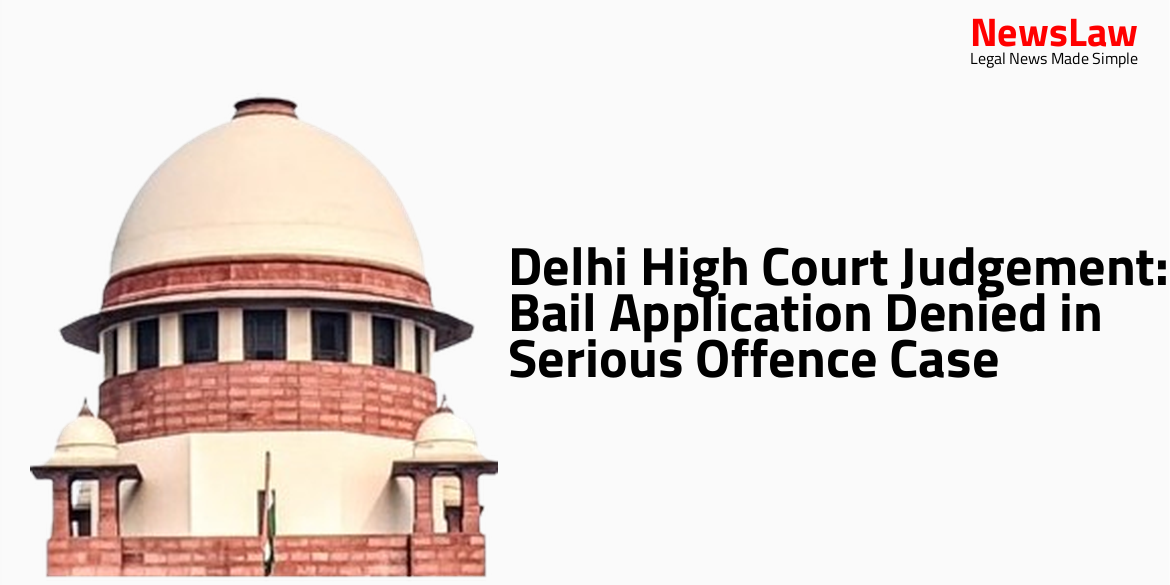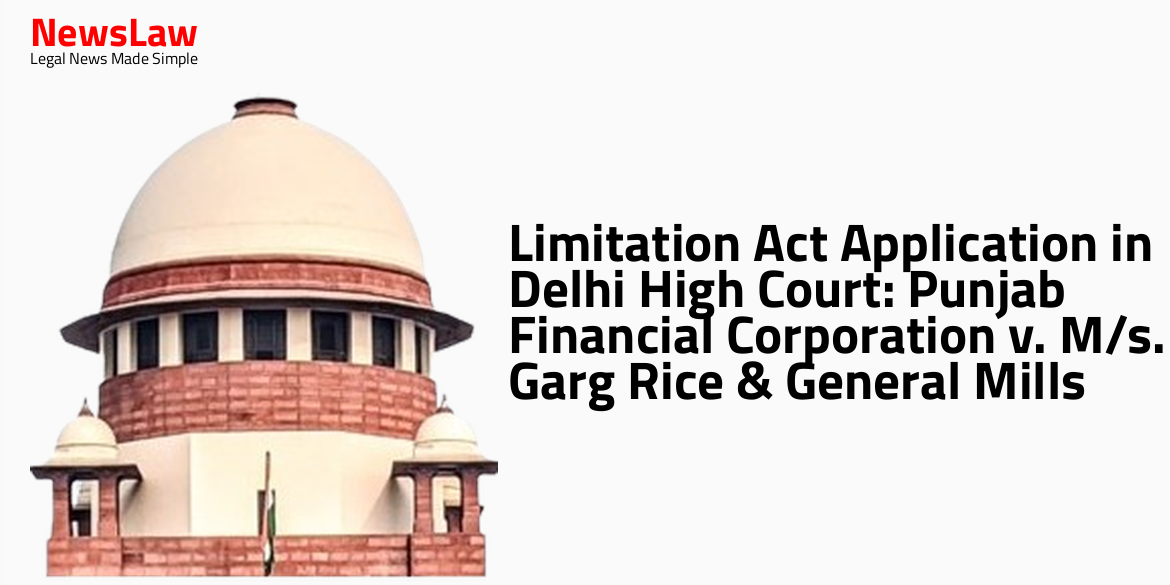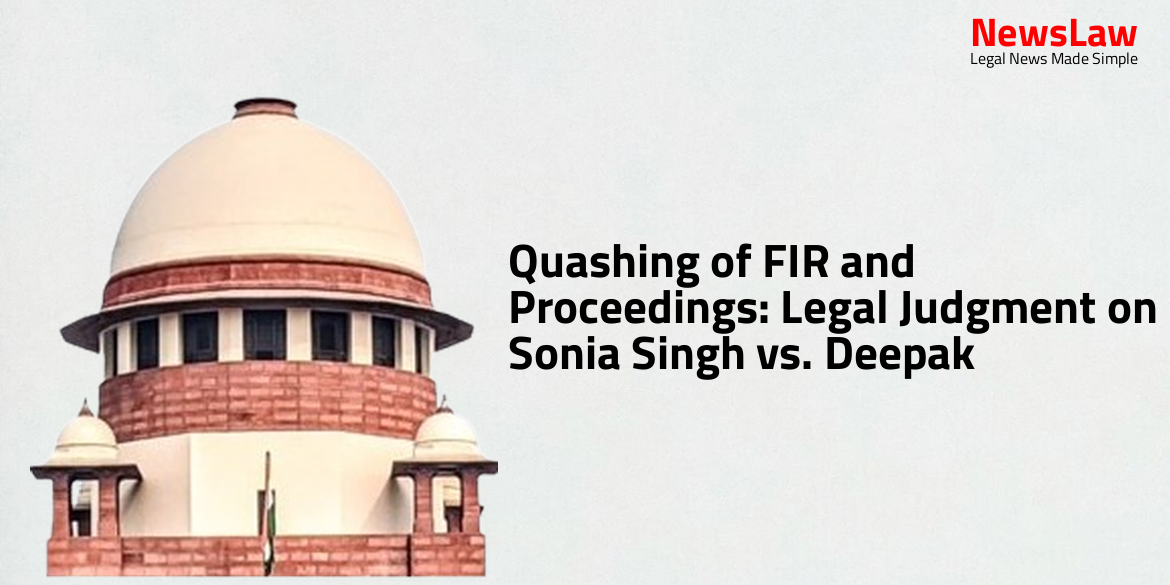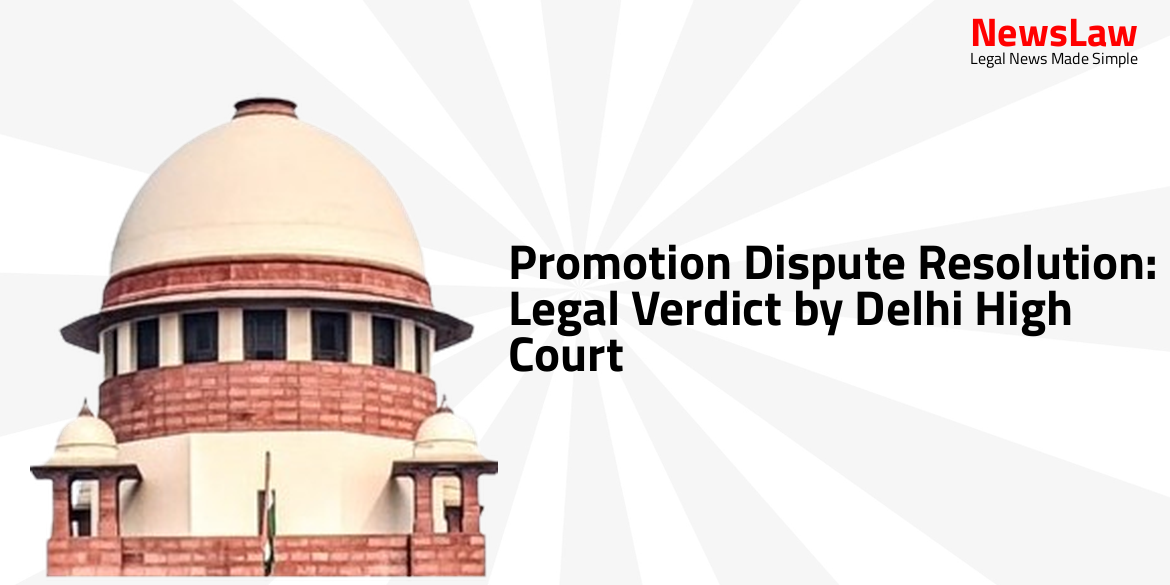The Delhi High Court recently delivered a significant judgement in a case involving a denied bail application related to a serious offence. The court carefully assessed various factors, including the nature of the offence, witness testimonies, and potential impact on justice. The case presents a compelling look into the complexities of legal proceedings and the challenges of ensuring a fair trial for all parties involved.
Facts
- Wife of the deceased stated that co-accused visited her house prior to the incident and threatened her husband
- Friend of the deceased mentioned a phone call where deceased planned to meet her
- CCTV footage allegedly shows co-accused with the Applicant in the street and removing blood stained pants
- Deceased was found unconscious near Bajaj Showroom and declared ‘brought dead’ at the hospital
- Witness saw co-accused and Applicant chasing the deceased towards the railway line
Arguments
- Petitioner’s witness did not support the case of the prosecution and was declared hostile.
- Another witness also did not support the prosecution’s case.
- The fact that one witness turned hostile does not warrant bail for the Applicant.
- Important witnesses, like the wife of the deceased, are yet to be examined.
- Only one out of 24 witnesses cited by the prosecution has given a statement in the Trial Court.
- One of the Applicant’s cases has been compounded, and in another, the sentence has been suspended with only a fine.
- The Applicant’s counsel argues that the Applicant has been in custody for almost five years.
- The wife of the deceased is a crucial witness for the prosecution.
- There is a concern that the Applicant might tamper with or influence the witness if released on bail.
- The Applicant has a history of criminal convictions, indicating a potential risk if freed.
Analysis
- The matters to be considered in an application for bail include nature of seriousness of the offence, character of the evidence, likelihood of the accused fleeing from justice, impact on prosecution witnesses and society, and likelihood of tampering.
- The considerations for grant of bail include prima facie ground of the accused committing the offence, nature and gravity of the charge, danger of accused absconding, character and behaviour of the accused, likelihood of offence being repeated, reasonable apprehension of witness tampering, and danger of justice being thwarted.
- Courts must consider principles laid down in Anil Kumar Yadav v. State (NCT of Delhi) and State of U.P. v. Amarmani Tripathi while granting bail.
- A vague allegation of tampering may not be enough to refuse bail, but if the accused is likely to intimidate witnesses or subvert justice, bail may be refused.
- Factors for granting bail also include the nature of accusation, severity of punishment, supporting evidence, witness tampering concerns, and court’s satisfaction with the charge.
- The test for grant of bail was also considered in Jayendra Saraswathi Swamigal v. State of T.N., where factors like nature of offence, character of evidence, presence of accused at trial, witness tampering concerns, and public interest were highlighted.
- Granting or refusal of bail is case-specific and must be considered on individual merits.
- Applicant has been in custody for nearly five years with no trial progress.
- Applicant charged with serious offences including under Section 302 of the IPC.
- Prosecution alleges threats made to the deceased’s wife by co-accused.
- CCTV footage shows Applicant and co-accused assisting in removing blood-stained clothing.
- Recoveries alleged to have been made based on co-accused’s information.
- Detailed examination of evidence not necessary for granting bail.
- Reasons for granting bail should be clearly stated, especially in serious cases.
- Effect of witness turning hostile to be considered by Trial Court upon completion of evidence.
- The court does not find it appropriate to release the Applicant on bail at this stage.
Decision
- The Trial Court is requested to expedite the trial and dispose of it within one year.
- All parties must cooperate to ensure the speedy disposal of the case.
- Any observations made are solely for the purpose of deciding bail and not indicative of the case’s merits.
Case Title: KRISHAN PAL @ BOBBY Vs. STATE GOVT OF N C T OF DELHI (2024:DHC:3747)
Case Number: BAIL APPLN.-1030/2024



